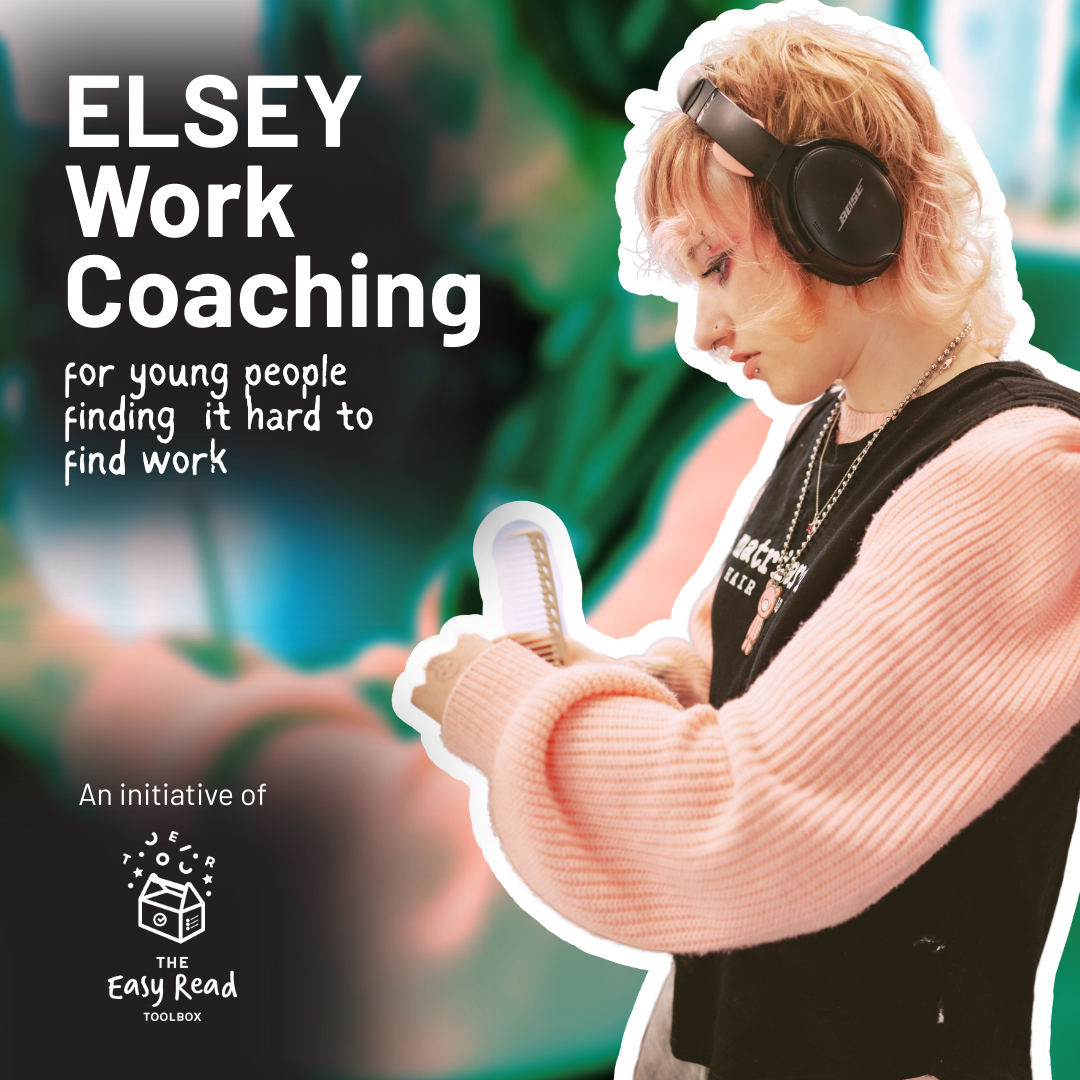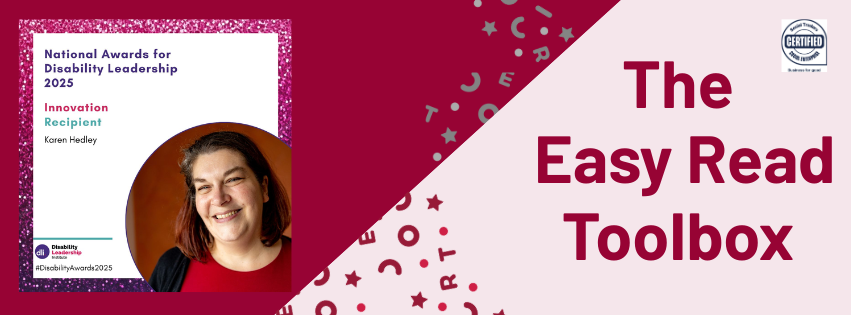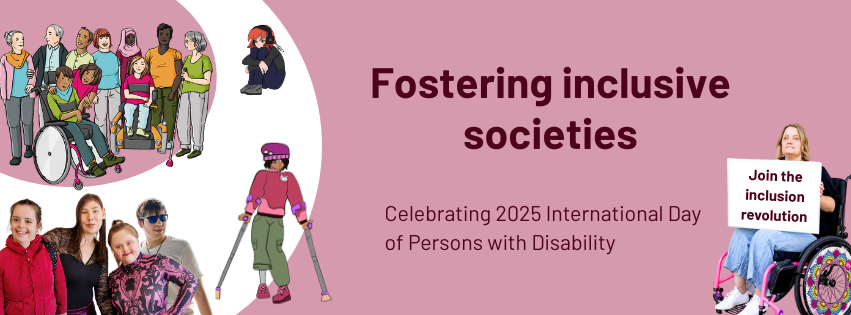Let’s make it more than just another IDPwD
"I needed my own ‘reasonable adjustments’. I knew that I needed a team who either understood or empathised with my needs. We absolutely needed a team of people with cognitive disabilities to provide feedback on our Easy Read documents, and to pay them for their innate expertise. Once I started looking for people to learn and write Easy Read with me, I found that disabled (and in particular, neurodivergent) people poured out of my networks!"
Image above: Jazzy - Project Officer, Kathryn - Senior Writer, Sezi - Artist, Nhat - Bridge Creations, and Karen smiling at the camera, at our 2nd birthday celebration in October 2023.
Today is International Day of People with Disability 2023 (IDPwD). This year’s theme is the not-at-all Easy Read: ‘United in action to rescue and achieve the Sustainable Development Goals (SDGs) for, with and by persons with disabilities.’
There are 17 SDGs, covering every part of life and rights for disabled people - making it difficult to know where to focus.
I put my hand up to write our IDPwD without a clue what I was going to write about! My team suggested our employment model...
First things first
First I have to admit that I don’t see it as a ‘model’ - it’s just the way we do things. When I identified that we were a social enterprise, my theory of change was to change communication to be easier to read by creating tools and education to support communicators. It’s not that employing disabled people wasn’t part of what we did. It’s that it had never occurred to me to operate any other way.
It’s only over the past year or so, being asked to speak about my management style (when I didn’t realise I was managing anyone!) and speaking with our clients and networks that I realised what we are doing is unusual, and might, therefore, be of interest and value to others.
Thanks to the leadership of disabled people such as
Christina Ryan and
Cain Beckett, former supervisors, I was always going to employ people with disabilities, and pay them a fair wage. I’d long been a vocal opponent to the model where disabled people, with cognitive disabilities for the most part, are paid no more than a few dollars an hour. It gets my blood boiling! I also found it easy to employ my own teenage children, and it was important to me that they get an inclusive first or second employment experience.
It’s all about me
Then I needed my own ‘reasonable adjustments’. I knew that I needed a team who either understood or empathised with my needs. We absolutely needed a team of people with cognitive disabilities to provide feedback on our Easy Read documents, and to pay them for their innate expertise. Once I started looking for people to learn and write Easy Read with me, I found that disabled (and in particular, neurodivergent) people poured out of my networks!
But -
it’s easy to employ people with disabilities, if you try just a little - keeping them takes a little more effort, and providing an inclusive, accepting workplace can be even more challenging. Notice that I didn’t say hard. I honestly believe that wanting to provide such a workplace, and starting the steps toward it is the hardest part. You’ve got to walk that talk!!
So what have we done and learned along the way? First things first - don’t see this as something that is a pass or fail. See it as an ongoing process of improvement and inclusion as a team. Remember that every team and every person in your team are different and have unique needs. Your team members are the experts in what they need. Secondly, don’t think that we always get it right. I have definitely made mistakes which make my heart sink, but trust between us has meant those mistakes became learning experiences, rather than disasters.
Recruiting without merit
CEO of the Disability Leadership Institute, Christina Ryan, has been writing about the problem with merit based recruitment for years. It sets up a culture of sameness, and reduces opportunities for potential growth by insisting that everyone fits the same (exclusionary) box.
So far our recruitment process has involved no selection criteria, optional resumes/CVs, or reference checking. We start with a chat, where each person is invited to share their strengths, experiences and future plans. Each role evolves to fit the person in it, rather than them squishing into a box. Perhaps we’ve been lucky so far, but to date we have an amazing team of people! My biggest issue is convincing them to believe in their potential as much as I do.
Your needs are our needs
Segregation is OUT. Even if the commissioners for the Disability Royal Commission couldn’t agree on this fundamental fact, that’s only because our society currently isn’t in a place to be inclusive enough for a world without segregation for all to be a positive experience for all. There’s only one way through this conundrum and that’s TO BE INCLUSIVE! So we ask everyone who joins our team, what they need from us, in order to work well together. Yes, everyone - not just disabled people. We don’t ask about reasonable adjustments. We don’t qualify it in any way. We try to meet everyone where they’re at. The best thing about a team who do this, is that they are naturally flexible enough to reshape and meet the needs of each new member.
It’s all bendy
Most managers would say they offer a flexible workplace, but staff wouldn’t necessarily agree! When team members start with us we discuss a range of hours we’d both prefer, but they are welcome to work more hours, with confirmation, and to work as few hours as they need to. Obviously this can be a little tricky when there are tasks to do and goals to meet, but we have found that the rest of the team naturally steps up to help out in the short term, and if it continues, we are able to have an open conversation focusing on what we can do to continue to support the person. Although we can’t afford to pay penalties just yet, it’s on our list, and our team work the days and times that work best for each of them. It sometimes makes scheduling team meetings tricky, but we’re all happy to give a little to find something that works for all of us.
Well, I started this article expecting to write a page at most, especially as I’m so used to writing in Easy Read’s straight-to-the-point style, and now IDPwD is two-thirds over, so I’m going to leave it there, other than the words of the Toolbox team themselves:
“What I love most about working with you (and my other clients) is the understanding that our disabilities can sometimes 'get in the way' of being productive or working long hours, but there is never an expectation for us to work through. Time, projects, tasks and meetings are all always flexible when a bad day occurs. As someone who came from 8 years in retail where this kind of flexibility wasn't possible, it's been the most refreshing and rewarding line of work to be part of.”
- Debbie, Virtual Assistant
“Working for the Toolbox really boosted my confidence. After leaving high school, where I really struggled, I was overwhelmed by the idea of finding sustainable work. I knew I had the capacity to produce valuable work, but had some extreme barriers related to my confidence after being diagnosed with ADHD. Finding a workplace where I could explain my situation and be met with understanding and the flexibility to help me tap into my full potential, helped improve my confidence immensely. Additionally, feeling comfortable enough to explain what I’m interested in pursuing in my role to boost experience for my long-term career, and having the Toolbox go above and beyond to support those goals, leaves me feeling very valued as an employee.”
- Meg, Junior Writer
Karen Hedley
Founder, The Easy Read Toolbox





